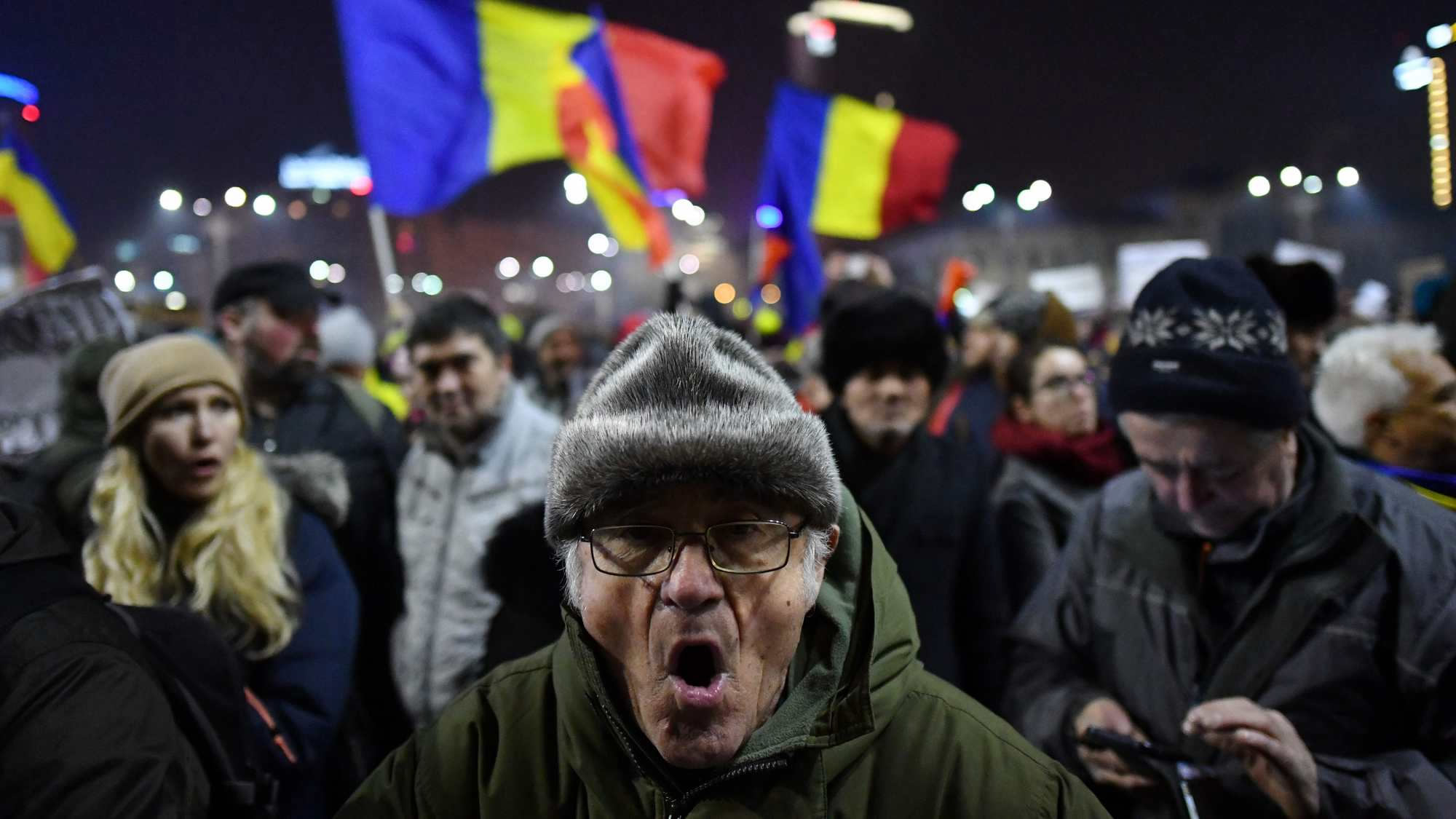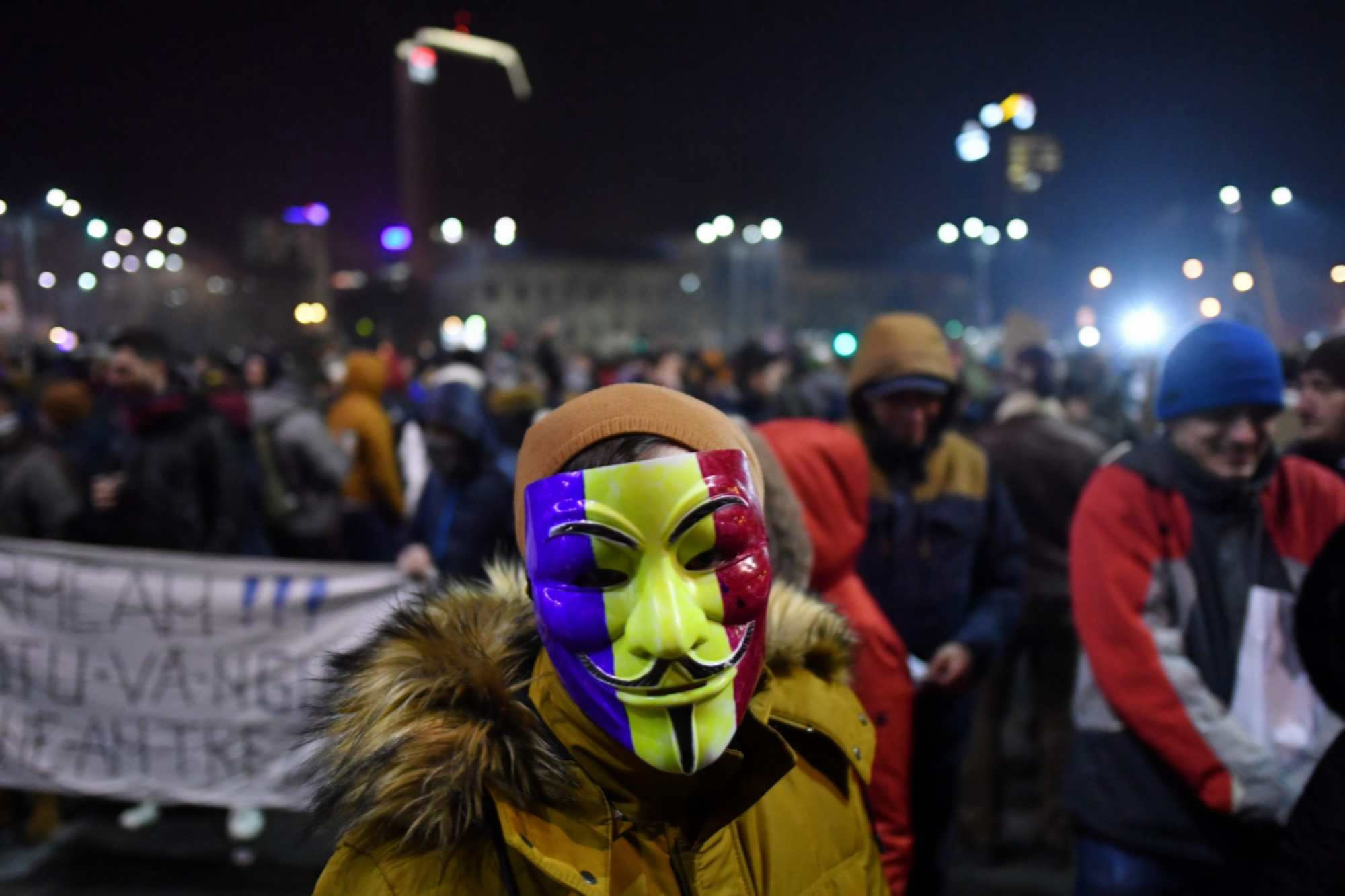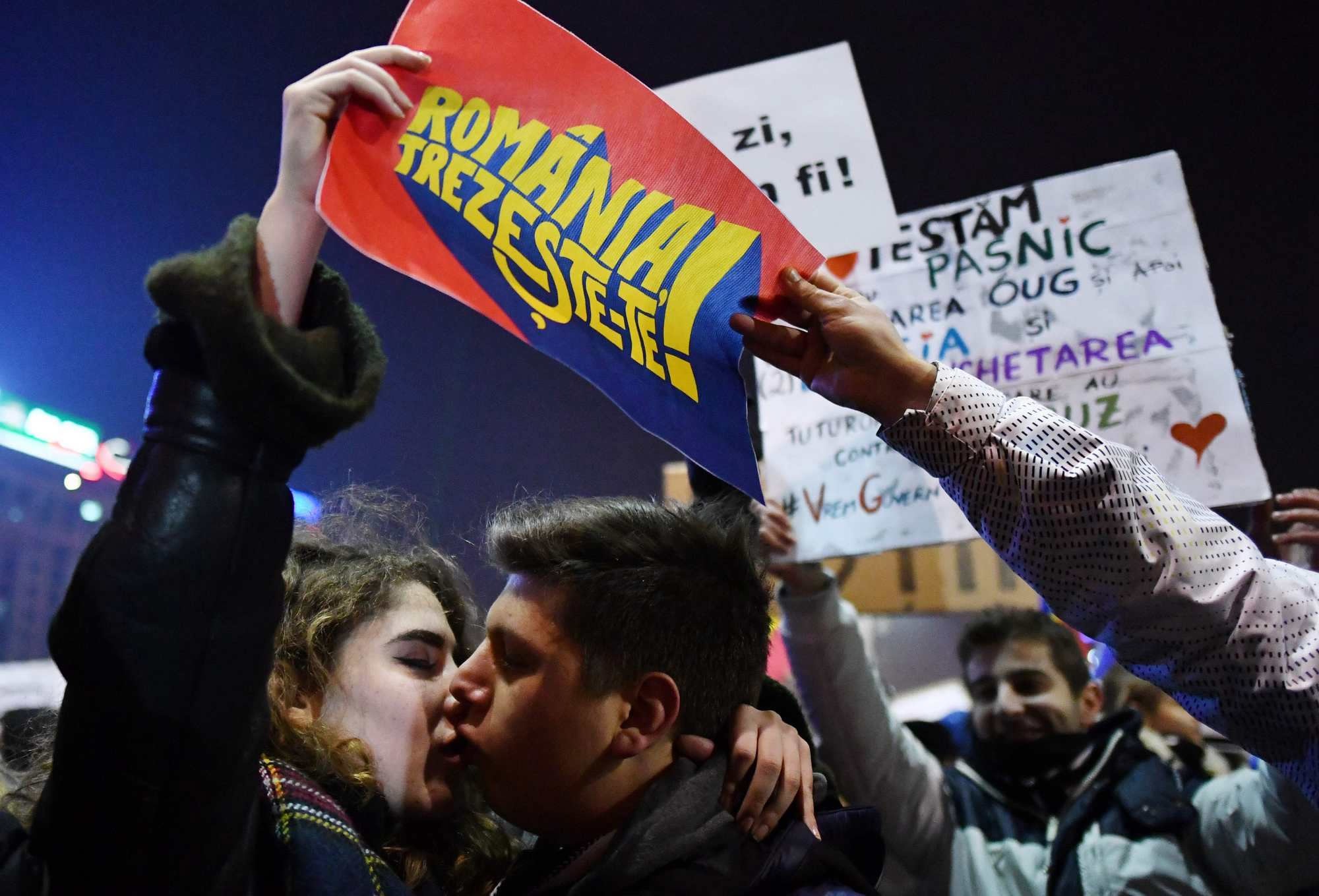
Politics
10:08, 06-Feb-2017
Romanians call for government to resign despite scrapping of corruption law
Updated
10:38, 28-Jun-2018

An esimated half-million Romanians took to the street in another night of protests Sunday, with many calling on the government to quit even after it scrapped the corruption legislation that sparked the week of public outrage.
Prime Minister Sorin Grindeanu stood firm, however, saying his government, which has barely been in office a month, "has a responsibility to the people who voted for us" and would not resign.
The last six nights of noisy protests thronging cities and towns around the country have been the biggest outpouring of public anger since the toppling and summary execution of communist dictator Nicolae Ceausescu in 1989.
The object of public anger is an emergency decree passed on Tuesday night which critics at home and abroad feared marked an alarming retreat in the battle against corruption, long the scourge of the EU's second-poorest country.
Grindeanu's cabinet earlier on Sunday repealed the decree, but this failed to assuage protesters, many of them chanting "Resign! Resign!" as they waved flags, brandished signs and blew whistles and plastic horns in the national colours.

A man wearing a Guy Fawkes mask painted in the colors of Romanian flag looks on during a protest in front of the government headquarters against controversial decrees to pardon corrupt politicians and decriminalize other offences in Bucharest on February 2, 2017. /CFP Photo
A man wearing a Guy Fawkes mask painted in the colors of Romanian flag looks on during a protest in front of the government headquarters against controversial decrees to pardon corrupt politicians and decriminalize other offences in Bucharest on February 2, 2017. /CFP Photo
"They are corrupt. We want justice... The government will still try something (with the decree)," said Emma, 24, one of between 200,000 and 300,000 people media estimated had gathered at Victory Square in downtown Bucharest
"They are liars and bad people," said her friend Nicole, 25. "The government has to fall... We are going to come back here every night."
The government decree, which had been scheduled to enter into force on February 10, was to make abuse of power a crime only punishable by jail if the sums involved exceeded 200,000 lei (44,000 euros, $47,500).
The government still also aims, via a separate decree to be reviewed by parliament, to free some 2,500 people from prison serving sentences of less than five years.
Grindeanu's Social Democrats (PSD) have argued the measures were meant to bring penal law into line with the constitution and reduce overcrowding in prisons.
But critics see the moves as a brazenly transparent attempt to let off the many PSD officials and lawmakers who have been ensnared in a major anti-corruption drive of recent years.
That push saw almost 2,000 people convicted for abuse of power between 2014 and 2016, and a serving prime minister, five ministers, 16 lawmakers and five senators go on trial.
Dark forces
Critics say that one beneficiary -- although he himself denied this -- would be Liviu Dragnea, the powerful head of the PSD who helped the party win a resounding election victory only in December.
Dragnea is already barred from serving in government because of a conviction for voter fraud, and he is currently on trial for alleged abuse of power. He denies wrongdoing.
On Sunday a defiant Dragnea accused unspecified shadowy forces of instigating the demonstrations.
"The organisation of these protests and their scale show that this is a political gathering. Who is organising this? Hard to say but I hope that the state institutions have this information," he said.

A couple kiss while holding a placard reading "Wake-up Romania" during a protest in front of the government headquarters in Bucharest against the controversial decree to pardon corrupt politicians and decriminalize other offenses on February 2, 2017. /CFP Photo
A couple kiss while holding a placard reading "Wake-up Romania" during a protest in front of the government headquarters in Bucharest against the controversial decree to pardon corrupt politicians and decriminalize other offenses on February 2, 2017. /CFP Photo
"I reproach myself for not having understood that this is a much better organised plan than a simple spontaneous movement," he told the channel Romania TV.
But demonstrator Laura Fatu said that people simply wanted an end to corruption.
"Our money, our forests... and future are being stolen. We have had enough," she told AFP.
"It is obvious that society is becoming unified. We are together... People are coming from other cities to Bucharest in order to change things," said Matei, another protestor.
"We are ready to make Romania a clean country, for our children and for our future."
(Source: AFP)
7070km

SITEMAP
Copyright © 2018 CGTN. Beijing ICP prepared NO.16065310-3
Copyright © 2018 CGTN. Beijing ICP prepared NO.16065310-3